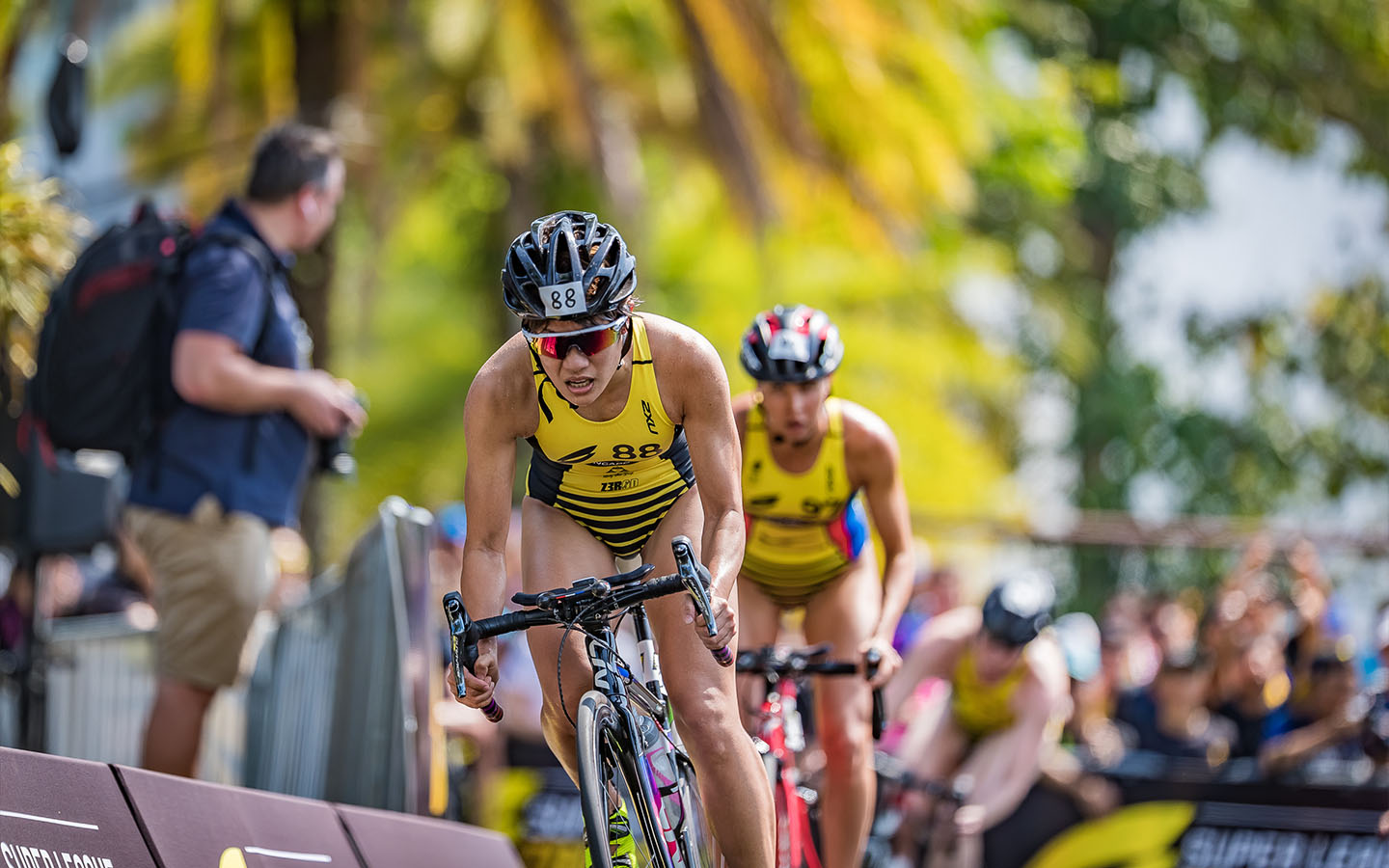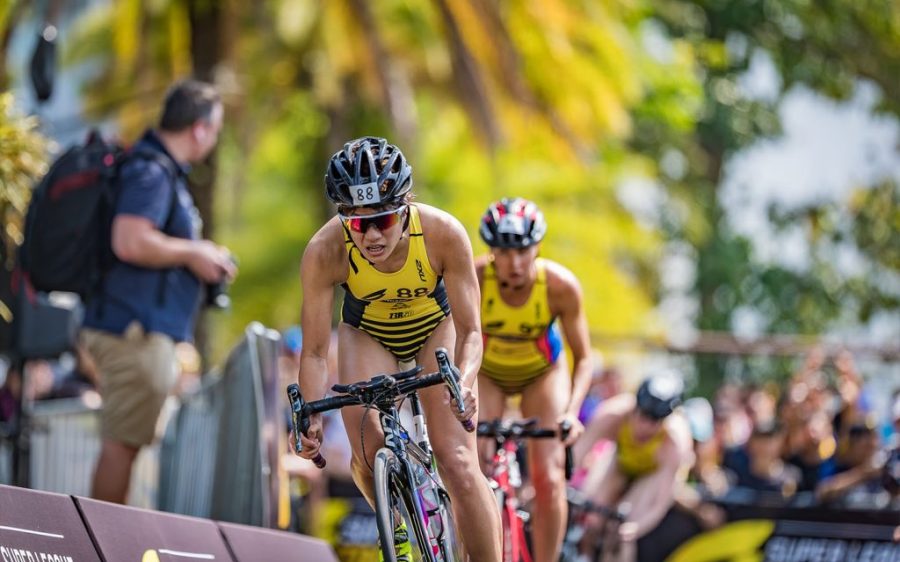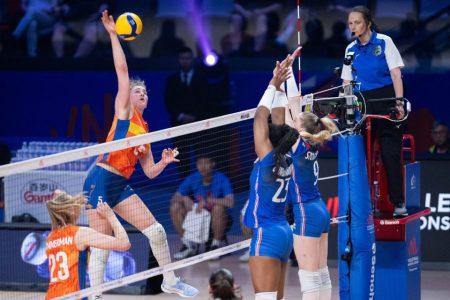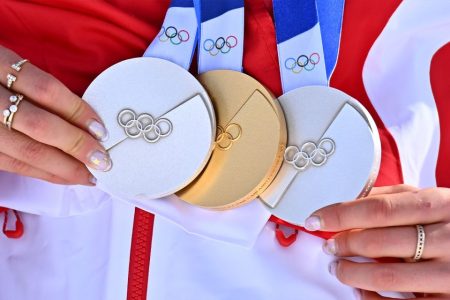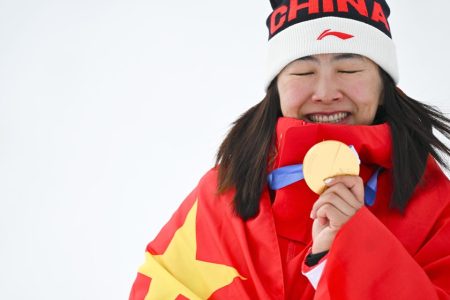Hoi Long is Macao’s top triathlete and a seven-time winner of the city’s Outstanding Athletes Election – more than any other competitor. But she has suffered hearing loss since she was just five months old, and while she wears a hearing aid today, the 40-year-old Hoi can only pick up sounds in her immediate vicinity.
Japan’s Kenta Ando has been the head coach of Macao’s triathlon team for more than 20 years and says he has found no one like Hoi. “She was one determined girl,” Ando told the Olympic Council of Asia. “She finished fourth at the Asian Games in Guangzhou in 2010, and fifth in Incheon in 2014 before claiming third place in 2018 at the Games in Jakarta and Palembang. She brought glory to Macao.”
[See more: Is Macao as deaf-friendly as it could be?]
Hoi Long, who is currently studying for a PhD and has worked for the Sports Bureau for eight years, sat down with Macao News to talk about her struggles, her motivations and her career highs to date.
What was growing up like?
My family have all been supportive. My mother worked shifts, but she always took me swimming. I was in primary school back then and swam between 8 to 10 pm.
Did you get enough external support?
Not enough. I didn’t learn sign language as a kid, so I had to rely on lip reading.
Other students could retake an exam if they failed, but the school did not let me do that. They said I would have to leave if I could not pass the exam. I had to work harder than other students to pass the exams and graduate.
Have things changed today?
There are legal provisions and inclusive education, so there is an improvement.
[See more: Macao is finally standardising its sign language]
What are the challenges you’ve faced as an adult?
Finding a job. I once took a written test when applying for a job. I scored the highest among the 2,000 candidates. But when I went for the interview, they said that if you can’t hear, you can’t work here. This has happened many times.
With no work experience, you cannot demonstrate your abilities. There were many times when I could have shown employers what I was capable of, but they always assigned me simple tasks.
You’re still running competitively at 40. What motivates you to keep going?
I love exercising. It’s part of my lifestyle. Not exercising is like skipping a meal. I’ve had this habit since graduating from college. I participate in competitions to enjoy them and not just for medals. Competing can also set an example for other deaf people to not just hide at home.
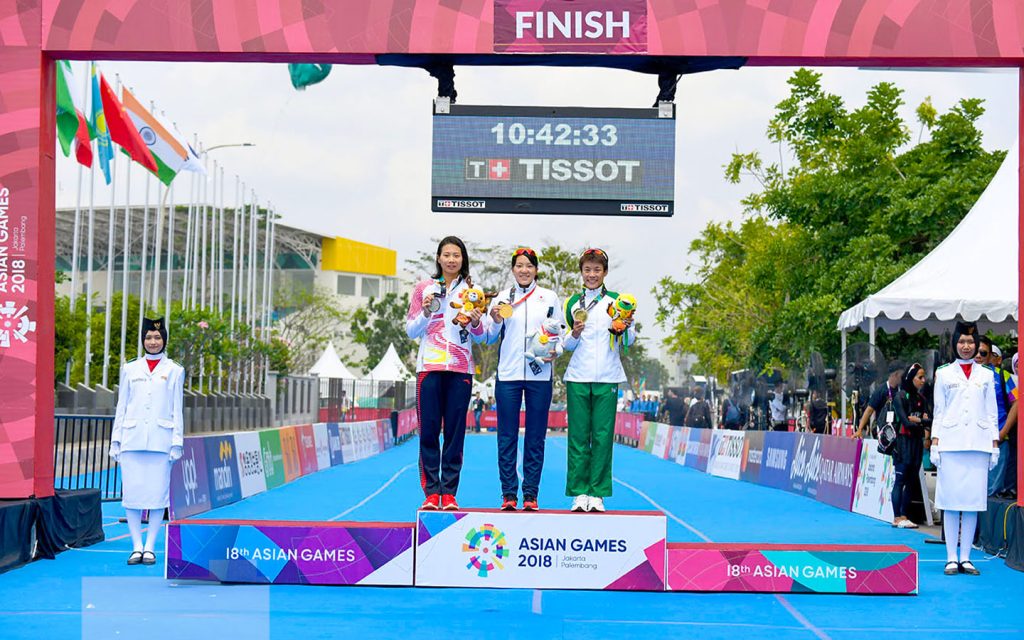
What’s been the most memorable moment in your career so far?
Winning a bronze at the 2018 Asian Games. It was hot and the environment was relatively poor, especially when running. Other athletes were not used to it, but I was okay with it and could perform because of Macao’s similar temperatures.
The difficult part before the competition was that I was working at Macao’s Sports Bureau and also studying. So I didn’t have much time to train. I squeezed in two hours before work and another two hours in the evening. It was like this every day.
Before that competition, I placed fourth in the triathlon at the 2010 Asian Games and fifth at the 2014 Asian Games. I had never won a medal, so I was happy when I finally won.
[See more: People with disabilities are being left behind, says a social services association]
What’s it like competing in the Deaflympics and the Asian Games?
I participated in the track and field event of the Deaflympics for the first time in 2009 and finished fourth. In 2013, I won a bronze and gold medal at two cycling events of the competition. This year I won silver in Taipei for the 5000m run. Comparatively, the Asian Deaf Games are better and have more professional athletes.
Will you participate in any competitions this year?
This year I will be participating in the World Deaf Cycling Championships in Poland in early September. In October, I will be at the Asian Deaf Games.
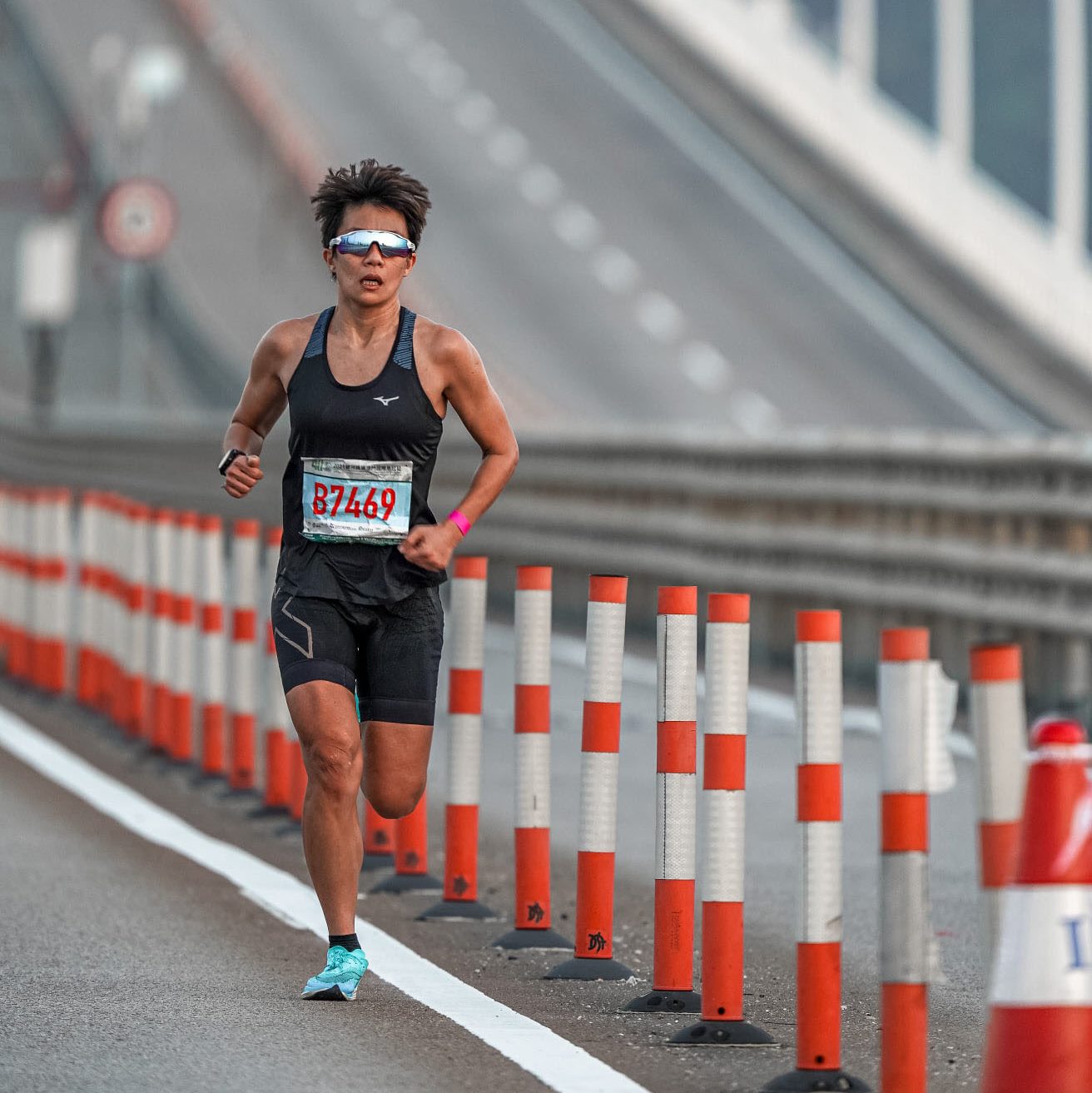
What goals have you set for yourself in the future?
I hope society can be more accepting of us. Currently, deaf people still face many inconveniences in Macao. For example, they can’t hear the announcements when waiting to see the doctor in a hospital. If the doctors wear masks, it is hard to read lips.
When I was little, my mother taught me to be a role model. I now communicate with people in different units, such as friends in the hospital and social organisations to give them suggestions for improvement.
[See more: Macao should have its own sign language lexicon by 2025]
What would you say to people with a disability?
Study hard, equip yourself, and improve your skills. To be more independent in society, you need to learn many skills. If I hadn’t learned to read lips, I wouldn’t be able to do most of the things I do today.
Your parting shot?
Difficult things are often a bridge between dreams. If you just sit quietly and do nothing, no matter how great your dream is, you will never be able to achieve it.
